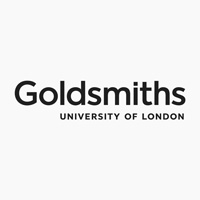fees waived
Social Science, Community Development and Youth Work, BA (Hons)
Goldsmiths, University of London, United Kingdom
Ranking in UK
Anthropology
Anthropology
Anthropology and Archaeology
Costs
food & rent S$24.8K / year
Entry requirements
Scholarships
Limited quantity
Information
Code
Intakes
Website (External)
Programmes
Information
Duration
2029
The BA in Social Science, Community Development and Youth Work at Goldsmiths offers a challenging and interactive programme for those with experience in the field, fostering critical reflection on recent developments. It integrates academic study in social sciences with fieldwork placements, preparing students to address 21st-century challenges through a commitment to social justice and equalities. Specialisations include youth offending, community arts, faith-based practice, conflict transformation, international development, and community enterprise. Students gain practical experience through placements, enhancing employability in statutory, voluntary, and independent sectors, with teaching from experienced lecturers who link theory to practice.The programme includes a first-year residential module for team building, followed by compulsory modules across three years, such as Introduction to Community Development & Youth Work, Fieldwork Practice, and a final-year Dissertation. Optional modules in years two and three cover topics like Global Youth Work and Enterprise in Communities. Assessment involves coursework, presentations, self-reflection reports, and portfolios, ensuring a comprehensive evaluation of skills and knowledge.
Residential The residential at the beginning of the second term in the first year provides the opportunity for you get to know other students and staff, while participating in student-programmed activities. The module takes place at a residential centre and there is no extra cost. Year 1 In your first year you will study the following compulsory modules: Introduction to Community Development & Youth Work Introduction to Applied Research Methods I Fieldwork Practice I Race, Racism and Professional Practice Introduction to Group Work Introduction to Applied Social Science Identity, Agency & Environment 2 Year 2 In the second year, you take the following compulsory modules: Group Work in Theory Group Work in Practice Fieldwork Practice 2 Theory, Policy and Politics Applied Research Methods 2 Community Development and Youth Work in Context You then choose one module from the following list of options: Arts in the Community Global Youth Work and International Development Youth Justice Religion, Belief and Spirituality in Professional Practice The Goldsmiths Elective Year 3 In the third year you take the following compulsory modules: Fieldwork Practice 3 Social Justice in Community Development and Youth Work Management and Leadership Critical Engagement with Social Policy Dissertation You then choose one option from the following list: Faith-based youth work Conflict Transformation Enterprise in Communities Please note that due to staff research commitments not all of these modules may be available every year.
A local representative of Goldsmiths, University of London in Singapore is available online to assist you with enquiries about this course.

